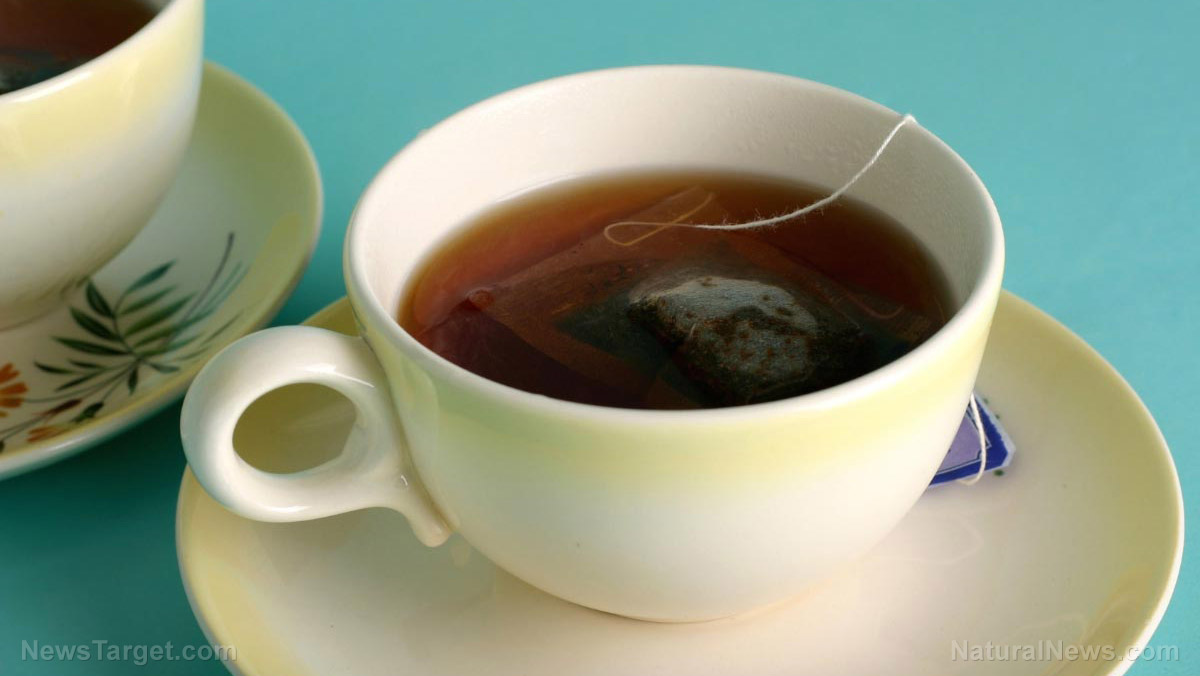Drink more black tea to prevent this common sexually transmitted disease
10/27/2018 / By Edsel Cook

A study conducted by the U.S. Department of Agriculture (DA) found that drinking more black tea will protect against trichomoniasis, one of the world’s most prevalent sexually transmitted diseases (STDs). This is due to protective compounds in the tea that can inhibit the parasite’s growth.
Trichomoniasis is caused by the protozoan Trichomonas vaginalis. It renders people more vulnerable to reproductive morbidity and the human immunodeficiency virus (HIV). Related protozoans are responsible for other diseases.
Certain strains of T. vagilanis are now resistant to the first line treatment drug metronidazole. Researchers are now looking for alternative methods of treating the non-viral STD.
An earlier study by the DA researchers found that tomatine – a natural compound found in tomatoes – could prevent the growth of Trichomonas strains in humans, cattle, and cats. Their report suggested that natural foods can be used to stop and treat trichomoniasis.
Working alongside their counterparts in the University of the Pacific (UotP), they investigated edible plants that prevent the growth of pathogenic microbes. The researchers suspected that natural ingredients capable of breaking the cell membranes of microbes could also kill protozoans such as Trichomonas. (Related: Tea boosts your brainpower: Study finds it makes you happy, which boosts creativity.)
Black tea extracts inhibited growth of three different Trichomonas strains
The DA researchers tested 10 solutions made from powdered edible plants: Two green tea extracts, two extracts from black tea, pomegranate fruit extract, pomegranate seeds, jujube fruit, jujube seeds, red wine grape extract, and grape seed extract.
Mother Nature's micronutrient secret: Organic Broccoli Sprout Capsules now available, delivering 280mg of high-density nutrition, including the extraordinary "sulforaphane" and "glucosinolate" nutrients found only in cruciferous healing foods. Every lot laboratory tested. See availability here.
The solutions were used to inoculate cultures of three Trichomonas strains: T. vaginalis G3, Tritrichomonas foetus D1, and feline T foetus C1. The most effective of the substances were applied to Metronidazole-resistant T. vaginalis strains and harmless bacteria.
For the purpose of the experiment, all theaflavins in black tea were reported as equivalents, since they possessed similar absorption properties.
The researchers reported that black tea extracts were the only solutions that inhibited all three strains of Trichomonas parasites. The G3 strain was the most vulnerable to the natural treatment methods.
Furthermore, the black tea extracts showed the greatest inhibitory effect. While the low-theaflavin extract showed lower levels of the compounds than what was reported on its label, the high-theaflavin sample greatly exceeded the minimum value of its product specification.
The researchers also noted that the different theaflavins used the same approach in neutralizing the pathogenic protozoa. Theaflavins did not harm lactobacilli bacteria that are normally found in the body.
Other natural ingredients have minimal or specialized effects on Trichomonas
Green tea catechins were shown to inhibit the G3 and D1 strains. It did not show any effect on the C1 strain. The researchers noted that green tea was prepared differently and quicker than black tea, which is allowed to “ferment” and turn catechins into theaflavins and thearubugins.
Pomegranate fruit extract was nearly three times better than seed extract in inhibiting the G3 strain. The two pomegranate-derived extracts showed the same effect on the C1 strain. They did not work on the D1 strain.
The jujube fruit and seed extracts only showed minimal effectiveness. Their effects were restricted to the G3 strain. The seed extract showed greater activity due to higher phenolics and antioxidative activity
Red wine grape extract only affected the G3 strain. Grape seed extract worked on G3 and C1, with its effect on C1 being second only to the high-theaflavin black tea extract.
The C1 strain is the most resistant to natural inhibition. However, it is highly vulnerable to grape seed extract.
The DA-UotP team proposed additional clinical studies to compare tomatine and black tea extracts as possible natural treatments for animal and human trichomoniasis.
Read about other natural ingredients that can protect your health at Ingredients.news.
Sources include:
Tagged Under: black tea, catechins, grape seed extracts, Green tea, green tea extract, natural cures, natural remedies, parasite, parasites, sexually transmitted disease, Theaflavin, Trichomonas, trichomoniasis




















